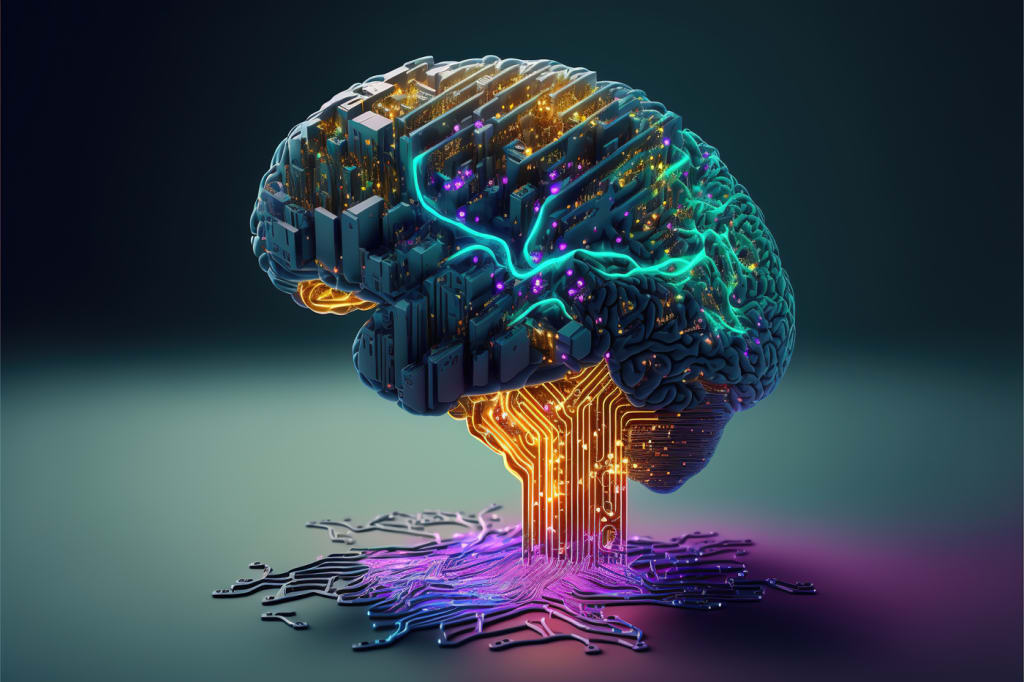Artificial Intelligence and the Horizon: How AI is Shaping the Future of Humanity
From Subtle Shifts to Tectonic Transformations

Artificial Intelligence (AI) – these two words have ignited both wonder and debate, standing at the crossroads of our dreams and dilemmas. As we approach a new era where AI intersects with every facet of our existence, it's imperative to understand its trajectory and the potential implications for humanity. This article dives into the future of AI, exploring its possibilities and the profound impact it might have on the human experience.
1. AI in Daily Life: Beyond Automation
In the near future, AI will be so deeply integrated into our daily lives that its presence will become almost invisible. Beyond voice assistants and recommendation algorithms, AI will tailor real-world experiences. Imagine walking into a store, and the environment adjusts to your preferences, with product suggestions based on your past behavior, or traffic lights optimizing in real-time to reduce congestion based on the flow of traffic. Such advancements will make our lives more comfortable and efficient.
2. Revolutionizing Healthcare
AI promises to revolutionize healthcare. From early diagnosis, personalized treatments, and drug formulations designed by AI, to robotic surgeries with precision beyond human steadiness. Moreover, AI-powered telemedicine can make healthcare accessible in remote regions, bridging the urban-rural divide. The next frontier might even see AI monitoring our health metrics in real-time, predicting illnesses before they manifest.
3. Transforming the Job Market
As AI systems become more sophisticated, a significant shift in the job market is inevitable. While certain roles, especially repetitive tasks, may face redundancy, AI will also give birth to new professions and industries. The challenge will be in ensuring a smooth transition, with education systems adapting to equip individuals with skills relevant for a world cohabitated with AI.
4. Ethical Implications: Who Controls AI?
One of the most pressing concerns is the ethical governance of AI. As AI systems make decisions, who is to be held accountable? The programmers, the users, or the AI itself? Establishing clear ethical guidelines will be pivotal. Similarly, ensuring that AI doesn't perpetuate existing biases or create new ones is vital for a fair society.
5. The Economic Impact: Wealth Distribution and AI
The economic paradigms will likely be reshaped by AI. There's potential for tremendous wealth generation, but the question arises - who will benefit? Without careful planning, the divide between the 'AI-rich' and the 'AI-poor' could exacerbate existing socio-economic disparities.
6. AI and Creativity: Collaboration or Competition?
Many believe that creative fields will remain the exclusive domain of humans. However, with AI composing music, creating art, and even writing, this notion is being challenged. The future might see AI-human collaborations, pushing the boundaries of creativity, or new art forms birthed by AI itself.
7. The Cognitive Era: Enhancing Human Abilities
Beyond assisting us, AI has the potential to enhance our cognitive abilities. Neural interfaces, AI-driven augmented reality, and real-time language translation can amplify our natural abilities, paving the way for superhuman capabilities.
8. Emotional AI and Human Relationships
AI systems are evolving to recognize and respond to human emotions. While this promises more intuitive interactions with technology, it also raises questions about human relationships. Will AI companions reduce human-human interactions? Or will they provide solace in an increasingly isolated world?
9. The Existential Question: AI Consciousness
A more philosophical, yet crucial consideration is the potential for AI consciousness. As machines become increasingly sophisticated, will they achieve self-awareness? And if so, what rights and responsibilities will we have towards these sentient entities?
Conclusion
The future of AI and its relationship with humanity is multifaceted, teeming with opportunities and challenges. While AI promises to redefine the limits of possibility, it also brings forth profound questions about our identity, ethics, and the kind of world we want to build. As we stand on the cusp of this AI-driven era, it's crucial for interdisciplinary collaboration – technologists, ethicists, policymakers, and the public – to shape a future where AI enriches humanity, rather than diminishes it. The journey of AI is as much about machines as it is about the essence of being human.





Comments
There are no comments for this story
Be the first to respond and start the conversation.